IMU News 131: May 2025
A Bimonthly Email Newsletter from the International Mathematical Union (pdf)
Editor: Yoshiharu Kohayakawa, Universidade de São Paulo, Brazil
Editorial: An update on fraudulent publishing in the mathematical sciences and the role of the IMU
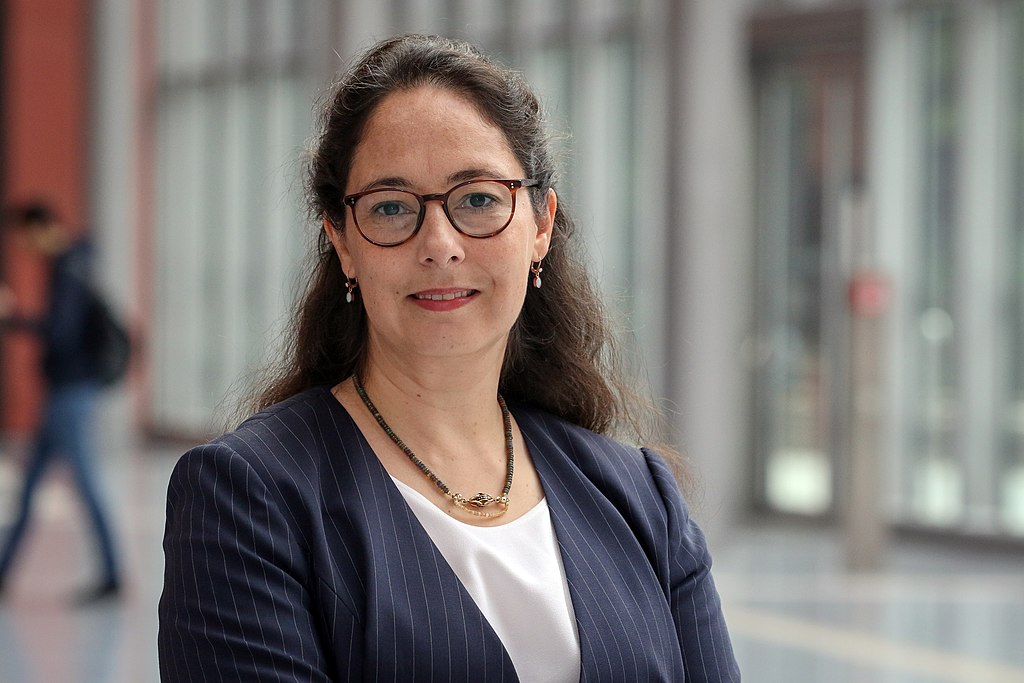
As announced in Christoph Sorger’s IMU News editorial from September 2024, I was given the task of leading a working group of IMU and ICIAM (International Council of Industrial and Applied Mathematics) to draft a joint statement for the scientific community on fraudulent publishing. The further members of the WG were Lynn Heller (China), Wil Schilders (the Netherlands, for ICIAM), Moritz Schubotz (Germany), Peter Taylor (Australia), and Luis Vega (Spain, for ICIAM) – thank you for your time and dedication! I am happy to announce that our collaboration has reached its conclusion, although, in the end, we didn’t produce one paper, but two :-)
The first paper is a longer report that analyses the current state of publishing in the mathematical sciences and explains the resulting problems, with extensive references for further reading. Our second, much shorter text offers (based on the findings of the first article) concrete recommendations, guidelines, and best practices for researchers, policymakers, and evaluators of mathematical research. It also explains how to detect and counteract attempts to game bibliometric measures, empowering the community to reclaim control over research evaluation and drive necessary change; needless to say, there is no easy solution. The recommendations are currently submitted to the EC of the IMU for endorsement.
In order to ensure widespread distribution, the article and the (possibly modified) recommendations will be printed in two subsequent issues of the Notices of the AMS (presumably in September/November), and in parallel they will be posted on the arXiv. We strongly invite you to write shorter notes in your national newsletters, bulletins etc pointing to the two publications, so that as many people as possible in our community become aware of it! Any feedback will be highly appreciated, and I’ll be happy to help you coordinating such a parallel publication. I would also urge you to contact science journalists to report on the problems whenever possible.
Finally, a few words on our own behalf. The IMU Committee on Electronic Information and Communication was founded at the General Assembly in Dresden in 1998, before the ICM in Berlin (I attended it as a young PhD student; tempi passati). I strongly believe that it is more important than ever, and I admire the foresight of those involved at the time in taking this step. Over the past years, the name has turned out to be not very self-explanatory anymore, and hence the EC agreed in its March 2025 meeting to rename it into the “IMU Committee on Publishing”, CoP for short (see IMU’s Circular Letter 3/2025). The acronym “CoP” was previously used for the “Committee on Permissions,” an ad hoc committee affiliated with the CEIC. It submitted its final report in mid-2024 and ceased to exist, thereby eliminating any confusion. Note that we chose ‘publishing’ rather than ‘publications’ in CoP’s name on purpose: we intend to include anything related to the publishing process, including topics like infrastructure and governance. By ‘publishing’, we mean anything that is made public to the community, ranging from traditional formats like articles and books to newer formats like blogs, videos, or Q&A sites. So, this is the first time that I sign a document as CoP Chair. Please don’t be surprised if you encounter either of these two acronyms (CoP, CEIC) in future. I would also like to ask for your patience regarding the time it will take to update the IMU webpages (this is a tricky business).
Ilka Agricola
Chair of the IMU Committee on Publishing (formerly CEIC)
Two workshops
Readers are invited to watch videos of lectures and presentations related to the editorial of this issue of IMU News and the IMU Committee on Publishing (formally CEIC), following the information below.
Workshop: Libraries of Digital Math. At this workshop, which took place at the Hausdorff Research Institute for Mathematics (HIM), 29 July to 2 August 2024, Ilka Agricola presented two talks: A view from the IMU Committee on Electronic Information and Communication and CEIC Publication Discussion. The lectures of the workshop are available on this page of the HIM.
MPS Workshop on Perspectives on Electronic Information & Communication in the Mathematical Sciences. This workshop, organized by the Committee on Electronic Information and Communication (CEIC, now CoP), took place at the Simons Foundation, New York, on 12 and 13 September 2024. The focus was on the future of mathematical archiving and research data infrastructure, steps towards a Global Digital Math Library, the challenges of citation cartels and predatory publishers, open access and copyright strategies, and new challenges: what is the impact of AI and formal proof assistants on mathematical publishing? Videos of the presentations are available on this page of the Simons Foundation.
Early registration for ICM 2026
Registration for the ICM 2026 is now open: register early and save! To benefit from the reduced rates, complete the registration process by the following deadlines:
- Early Advanced: Register by 1 August 2025
- Advanced: Register by 11 May 2026
Visit this page and check the registration instructions!
The 2025 Abel Week
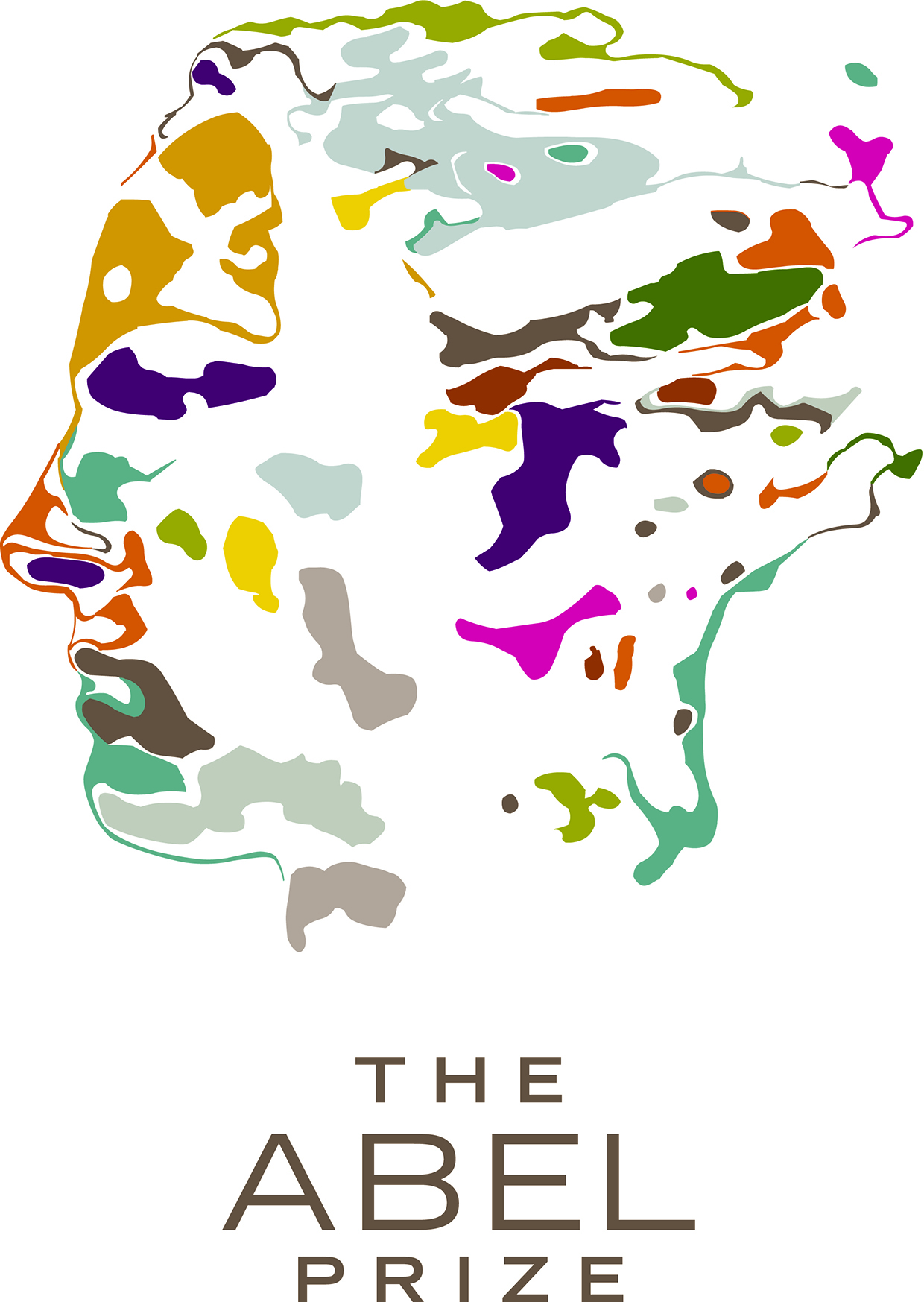 The 2025 Abel Week took place from 19 to 22 May 2025. In the first event of the week, the Norwegian Minister of Education Kari Nessa Nordtun, on behalf of the Norwegian Mathematics Council, presented this year’s Holmboe Prize to lecturer Sigrun Melander Vie for her inspiring and motivating teaching in mathematics at Rud Upper Secondary School in Bærum. This was followed by the Wreath-Laying Ceremony at the Niels Henrik Abel monument in the Royal Gardens, which officially marks the start of the Abel Prize Week. These were followed by several events, including the Abel Prize Award Ceremony and the Abel Lectures. Videos of the ceremony and the lectures will soon be available on the Abel Prize website and on the Abel Prize YouTube channel.
The 2025 Abel Week took place from 19 to 22 May 2025. In the first event of the week, the Norwegian Minister of Education Kari Nessa Nordtun, on behalf of the Norwegian Mathematics Council, presented this year’s Holmboe Prize to lecturer Sigrun Melander Vie for her inspiring and motivating teaching in mathematics at Rud Upper Secondary School in Bærum. This was followed by the Wreath-Laying Ceremony at the Niels Henrik Abel monument in the Royal Gardens, which officially marks the start of the Abel Prize Week. These were followed by several events, including the Abel Prize Award Ceremony and the Abel Lectures. Videos of the ceremony and the lectures will soon be available on the Abel Prize website and on the Abel Prize YouTube channel.
Breakthrough Prize announces 2025 laureates
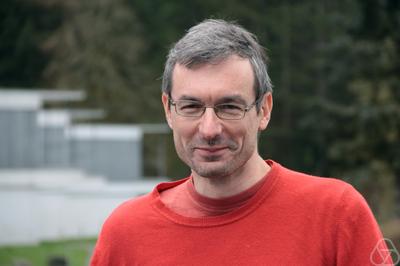
Gaitsgory, following the tradition set by the inaugural Breakthrough Prize winners, made a substantial donation to the IMU Breakout Graduate Fellowship Program. The IMU CDC is deeply grateful for his generous contribution!
The 2025 New Horizons in Mathematics Prize laureates are Ewain Gwynne, University of Chicago, “for contributions to conformal probability, in particular to the understanding of the LQG metric”; John Pardon, Stony Brook University, “for contributions to symplectic topology and other areas of geometry and topology”; and Sam Raskin, Yale University, “for contributions to the geometric Langlands program, including the theory of the Whittaker model and the proof of the geometric Langlands conjecture in characteristic 0.”
The 2025 Maryam Mirzakhani New Frontiers Prize laureates are Si Ying Lee, Stanford University (PhD Harvard University 2022), “for contributions to the theory of Shimura varieties”; Rajula Srivastava, University of Bonn and Max Planck Institute for Mathematics (PhD University of Wisconsin 2022), “for contributions in harmonic analysis and analytic number theory, including contributions to the problem of counting rational points near smooth manifolds”; and Ewin Tang, University of California, Berkeley (PhD University of Washington 2023), “for developing classical analogs of quantum algorithms for machine learning and linear algebra, and for advances in quantum machine learning on quantum data.”
Visit this page for the announcement of the 2025 Breakthrough Prizes.
Mori, Lusztig and Tarjan announced as 2025 Basic Science Lifetime Award laureates
The International Congress of Basic Science (ICBS) has announced their 2025 Basic Science Lifetime Award laureates. The laureates in mathematics and information science and engineering are:
- The 1990 Fields Medallist and President of the IMU for 2015–2018 Shigefumi Mori, “for his fundamental contributions to algebraic geometry, the Minimal Model Program, and profound influence in the classification of higher-dimensional algebraic varieties.”
- The 2014 Shaw Prize and 2022 Wolf Prize laureate George Lusztig, “for his unparalleled contributions to representation theory, and the profound influence of the theory of Deligne—Lusztig varieties, and Kazhdan—Lusztig theory.”
- The 1982 and first Nevanlinna Prize and 1986 Turing Award laureate Robert Tarjan, “for his pioneering contributions to computer science, invention of novel efficient graph algorithms and data structures, and their profound influence in data science.”
The 2025 Shaw Prize in Mathematical Sciences
The 2025 Shaw Prize in Mathematical Sciences has been awarded to Kenji Fukaya “for his pioneering work on symplectic geometry, especially for envisioning the existence of a category – nowadays called the Fukaya category – consisting of Lagrangians on a symplectic manifold, for leading the monumental task of constructing it, and for his subsequent ground-breaking and impactful contributions to symplectic topology, mirror symmetry, and gauge theory.”
Kenji Fukaya, Professor at the Beijing Institute of Mathematical Sciences and Applications (BIMSA) and the Yau Mathematical Sciences Center (YMSC), Tsinghua University, PRC, received his Bachelor’s degree (1981) and PhD (1986) from the University of Tokyo, Japan, where he was a Research Assistant (1983–1986) and an Associate Professor (1987–1993). He moved to Kyoto University as a Professor in 1994, and in 2013 he became a permanent member of the Simons Center for Geometry and Physics at the State University of New York at Stony Brook, USA. He started at BIMSA and YMSC in 2024.
Fukaya has received, among others, the Japan Academy Prize (2003), the Asahi Prize (2009) and the Fujihara Award (2012). Fukaya was an invited speaker at the 1990 International Congress of Mathematicians in Kyoto. He is a member of the Japan Academy.
Jacob Palis, IMU President 1999–2002, passes away
.jpg)
Palis's fundamental contributions profoundly shaped the theory and development of dynamical systems. He was an unwavering supporter of the IMU and served as our Secretary General (1991–1998) and President (1999–2002), pushing hard for capacity-building and international collaboration. Beyond the IMU, he led the Brazilian Mathematical Society, the Brazilian Academy of Sciences, the World Academy of Sciences, and was a great force working for the development of mathematics in Brazil and Latin America.
Palis received a wide range of honours, including the Balzan Prize (2010) and the French Ordre national de la Légion d'honneur (2005). But what many of us will remember most is his warmth, curiosity, and genuine commitment and care for young mathematicians.
Abel Prize Laureate Peter Lax passes away
Peter D. Lax, the 2005 Abel Prize Laureate, passed away on 16 May 2025, at his home in Manhattan. He was 99. Lax was awarded the Abel Prize, “for his groundbreaking contributions to the theory and application of partial differential equations and to the computation of their solutions.”
Readers are invited to visit the section of the Abel Prize website dedicated to Lax for a wealth of information, including a biography and the full citation, which closes as follows: “Peter D. Lax stands out in joining together pure and applied mathematics, combining a deep understanding of analysis with an extraordinary capacity to find unifying concepts. He has had a profound influence, not only by his research, but also by his writing, his lifelong commitment to education and his generosity to younger mathematicians.”
Nominees for IMU President and Secretary-General for 2027–2030
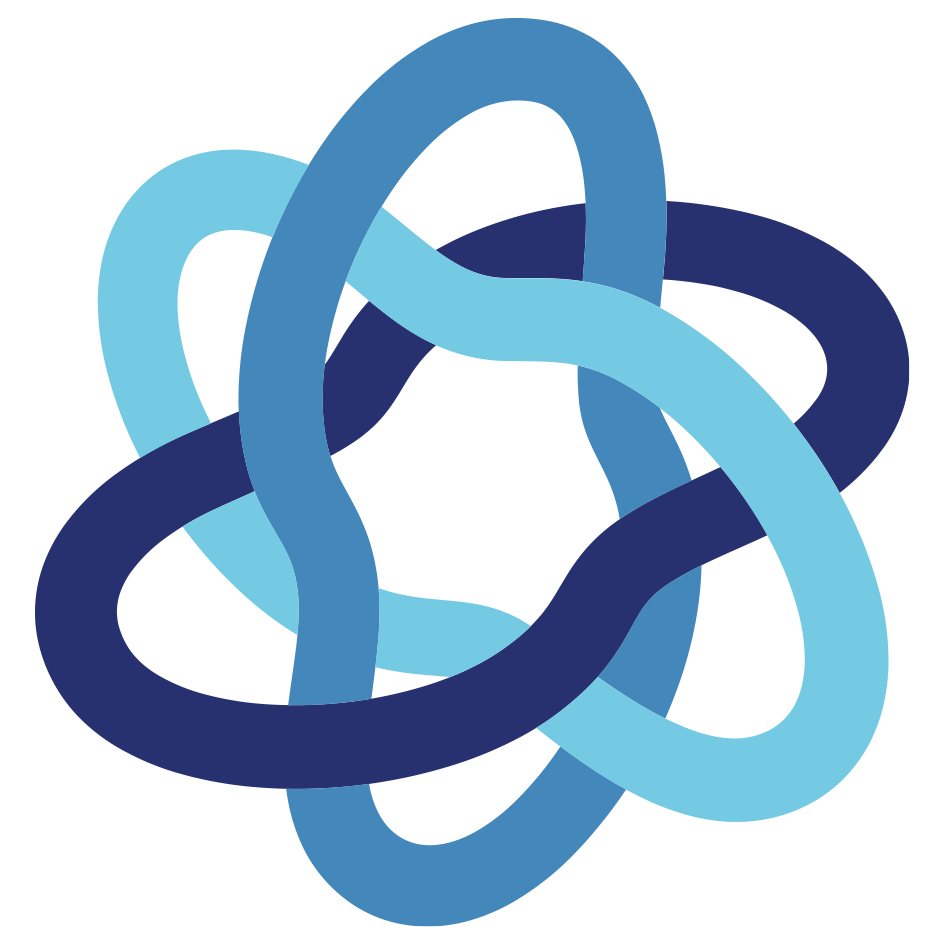 In his IMU AO Circular Letter 2/2025, IMU President Hiraku Nakajima announced the Nominating Committee's unanimous proposal for President and Secretary-General of the IMU for the term 2027–2030:
In his IMU AO Circular Letter 2/2025, IMU President Hiraku Nakajima announced the Nominating Committee's unanimous proposal for President and Secretary-General of the IMU for the term 2027–2030:
- IMU President: Ulrike Tillmann, UK
- IMU Secretary-General: Christoph Sorger, France (incumbent)
The election will take place at the 20th IMU General Assembly on 20–21 July 2026 in New York City, USA. The IMU Circular Letters to the Adhering Organizations are available here.
News from the International Commission on Mathematical Instruction (ICMI)
Call for proposal for ICMI Studies. ICMI Studies are a central activity of the International Commission on Mathematical Instruction. An ICMI Study addresses a theme of particular significance to contemporary mathematics education and is conducted by an international team of leading scholars and practitioners. The team is appointed by the Executive Committee of ICMI and it is expected to conduct the Study in line with the guidelines.
Each Study is built around an international conference and results in a published Study Volume. The Study Volume is a critical review and synthesis of the domain that also anticipates future trends and needs.
The ICMI Executive Committee is now calling for proposals for future ICMI Studies. The proposal may be submitted by individuals or teams of leading scholars in the field representing the proposed theme. The proposal should use the template below and be no more than one page in length. The proposal should address the following essential elements that are taken into account by the Executive Committee when considering a theme for an ICMI Study:
- The theme is of broad international interest, representing either a mature or emerging field.
- There is sufficient substance in terms of research, literature and practice, in a diversity of contexts and cultures, to ensure productive work and to provide a coherent and useful vision of the theme at stake.
- There is a critical mass of scholars of renowned expertise in the theme who can provide leadership, vision and experience and are committed to invest the effort involved in the production of a Study over a 4–5 year time frame.
The selection of a Study theme is the responsibility of the ICMI Executive Committee, which assesses the relevance, substance and depth of the theme and the possible composition of the Study’s leadership team. Academic standing, diversity and representativeness of the possible leadership team are taken into account to align with ICMI’s commitment to excellence and equity.
The ICMI EC may decide to redefine the scope and focus of a chosen theme as well as the appointment of Study co-chairs who may be different from those who proposed the study. In any case, the EC may decide to accept, modify or reject the suggested theme, or to set the proposal aside for consideration at a later date. All proposals will be acknowledged and receive feedback from the ICMI EC.
Those submitting proposals are strongly advised to familiarize themselves with both the current guidelines for conducting an ICMI Study and information on previous ICMI Studies.
Proposals should be sent to <icmi.president@mathunion.org> by September 1, 2025If you need more information, please contact ICMI Studies Editors, Merrilyn Goos and Jean-Luc Dorier.
Proposal Template for an ICMI Study (1 page). Please send the following information to this email address by September 1, 2025.
- Submitted by: (First and Last name(s), home institution(s), email address(es).)
- Please describe the proposed theme of the Study (e.g., a working title).
- Details of the Proposal. Please address the following essential elements that are taken into account by the Executive Committee when considering a theme for an ICMI Study:
- The theme is of broad international interest, representing either a mature or emerging field.
- There is sufficient substance in terms of research, literature and practice, in a diversity of contexts and cultures, to ensure productive work and to provide a coherent and useful vision of the theme at stake.
- There is a critical mass of scholars of renowned expertise in the theme who can provide leadership, vision and experience and are committed to invest the effort involved in the production of a Study over a 4–5 year time frame.
- Co-chairs and IPC members.
- Proposed co-chairs.
- Possible IPC members.
In addition to the one-page proposal, please attach a short CV (1–2 pages) of the main proposers.
News from the Commission for Developing Countries (CDC)
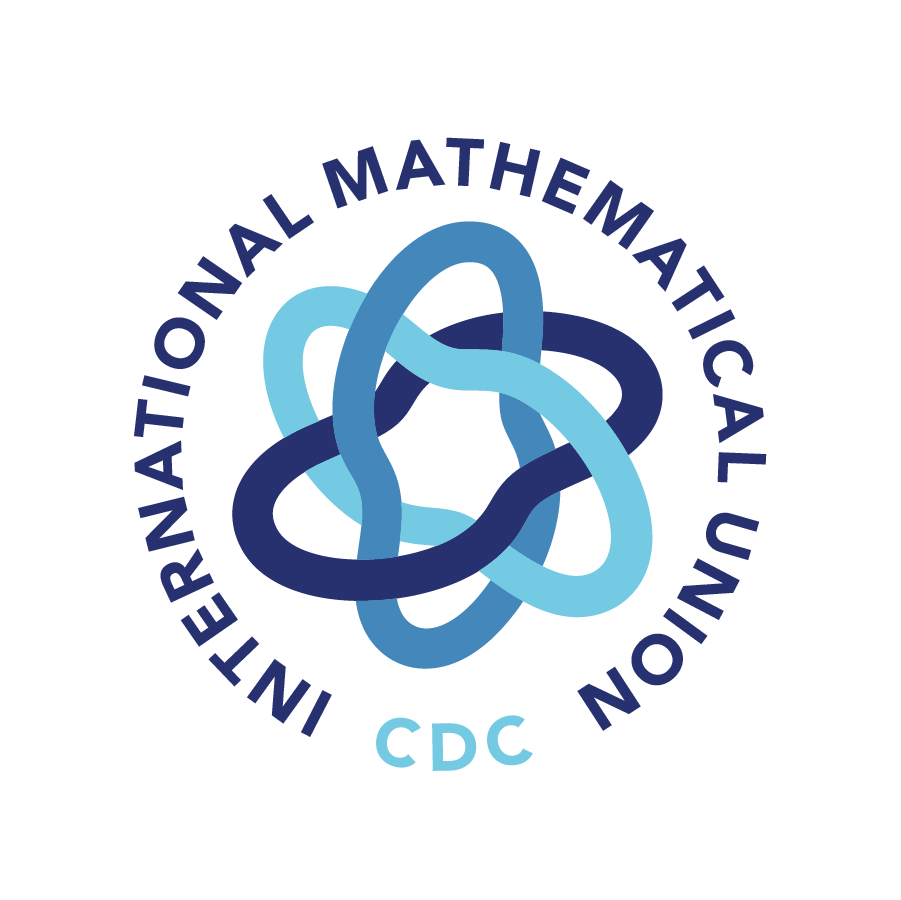 The next International Congress of Mathematicians will take place in Philadelphia, USA, from July 23 to 30, 2026. The call for applications for the ICM 2026 Travel Support Program, which provides financial support to mathematicians from eligible developing countries to attend, is now closed. We are pleased to report that the program received an impressive number of applications from across all continents. Notifications of the results have now been to the applicants. We warmly encourage everyone to register for the congress.
The next International Congress of Mathematicians will take place in Philadelphia, USA, from July 23 to 30, 2026. The call for applications for the ICM 2026 Travel Support Program, which provides financial support to mathematicians from eligible developing countries to attend, is now closed. We are pleased to report that the program received an impressive number of applications from across all continents. Notifications of the results have now been to the applicants. We warmly encourage everyone to register for the congress.
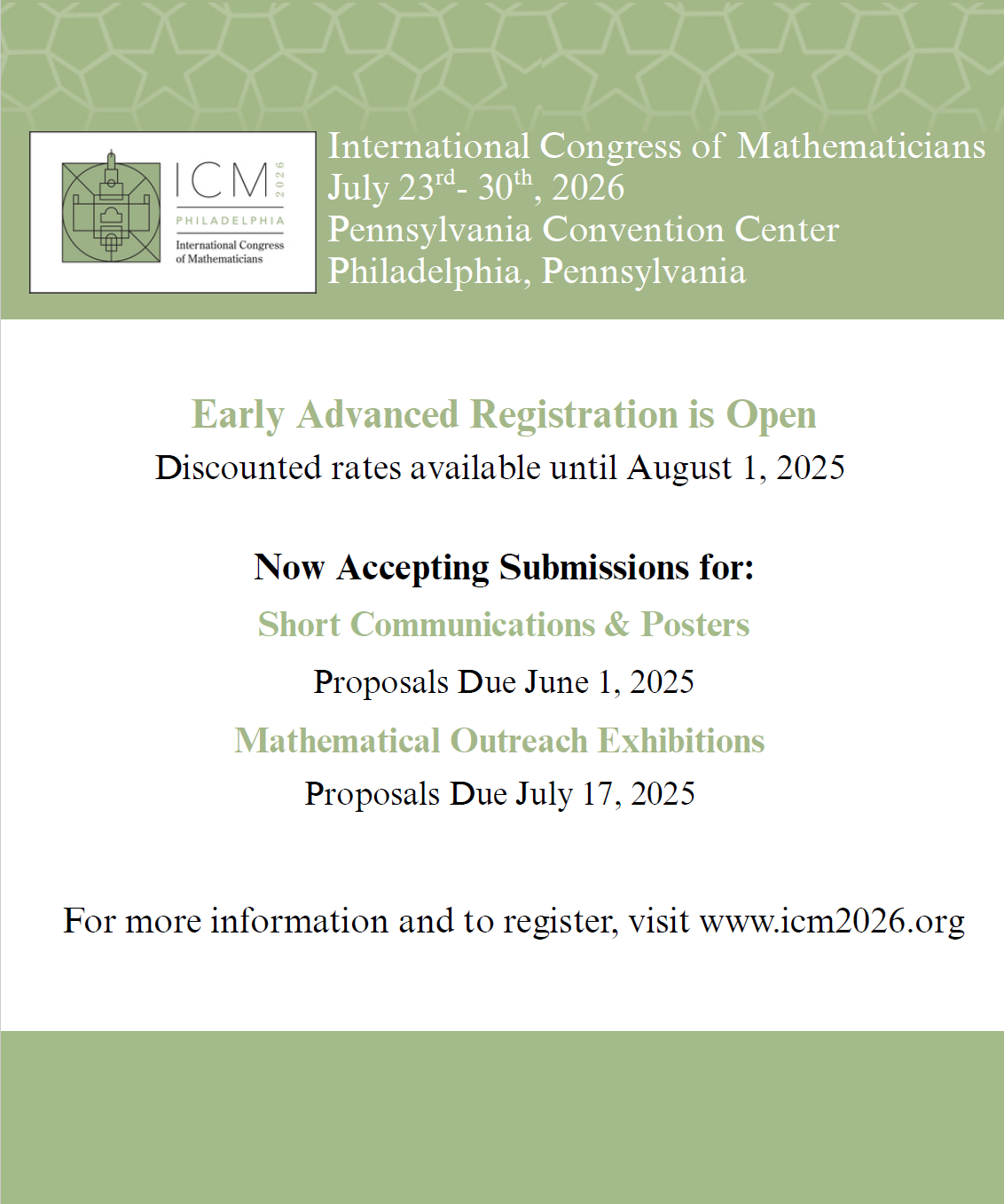
We would also like to remind you of the IMU-Simons Research Fellowship Program for Developing Countries, generously funded by the Simons Foundation. This new grant program supports mathematicians based in developing countries in undertaking collaborative research at mathematical institutions abroad. The CDC strongly encourages mathematicians and students from developing countries to apply to our calls listed below and to contact us for further details via email.
Grants for institutions
- Volunteer Lecturer Program (next deadline July 1, 2025, for courses to be held between November 1, 2025, and November 1, 2026)
Grants for conferences organizers
- Conference Support Program (next deadline July 15, 2025, for conferences starting after November 15, 2025)
Grants for research visits
- IMU-Simons Research Fellowship Program for Developing Countries (next deadline July 15, 2025, for research visits starting between December 1, 2025, and December 1, 2026)
Grants for graduate students
- IMU Breakout Graduate Fellowship Program (the 2025 call for nomination is open, with deadline May 31, 2025)
- Graduate Research Assistantships in Developing Countries (GRAID) Program (the 2025 call for applications is now closed)
News from the Committee for Women in Mathematics (CWM)
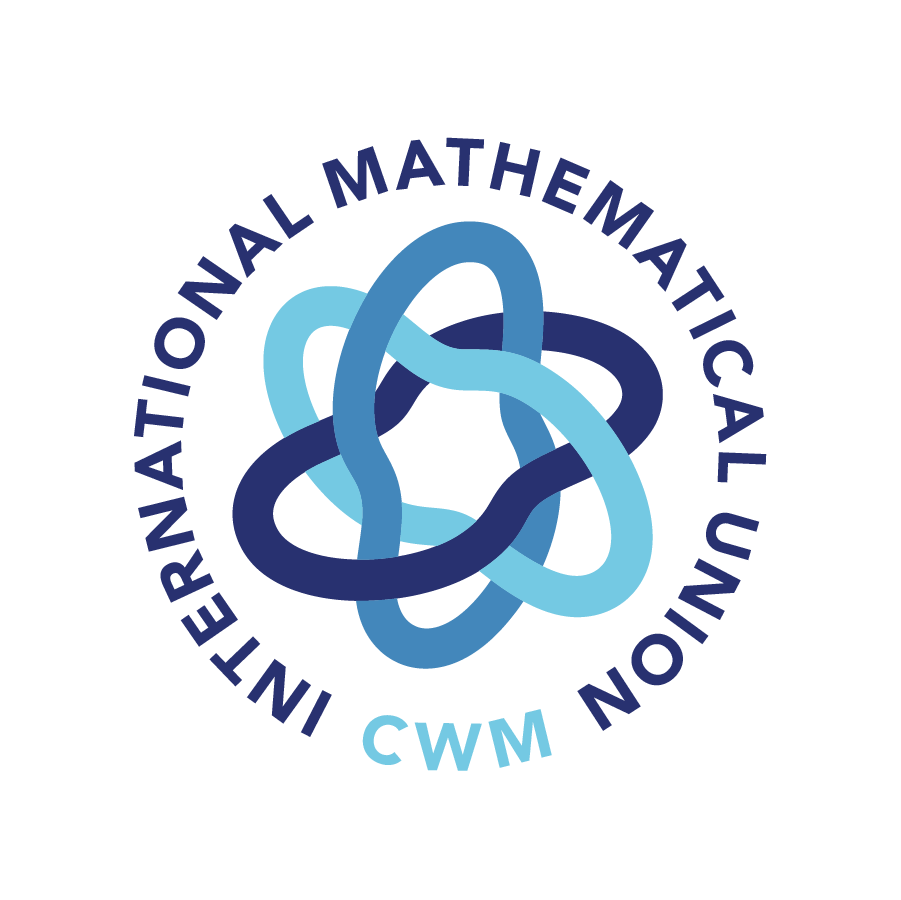 May 12, 2025 – A Global Celebration of Women in Mathematics. In 2025, “May 12 – Celebrating Women in Mathematics” was once again a lively celebration of women in mathematics all over the world, inspiring women, honouring their achievements in mathematics, and encouraging an open, welcoming, and inclusive work environment for everybody. The impact of the initiative has grown since last year, with a significant increase in the number of events registered on the interactive May 12 website, as well as in the number of participating countries.
May 12, 2025 – A Global Celebration of Women in Mathematics. In 2025, “May 12 – Celebrating Women in Mathematics” was once again a lively celebration of women in mathematics all over the world, inspiring women, honouring their achievements in mathematics, and encouraging an open, welcoming, and inclusive work environment for everybody. The impact of the initiative has grown since last year, with a significant increase in the number of events registered on the interactive May 12 website, as well as in the number of participating countries.
As of May 19, 2025, there were more than 210 events registered on the May 12 website from 61 different countries, distributed as follows:
- Africa: Algeria, Burkina Faso, Cameroon, Egypt, Morocco, Nigeria, Senegal, South Africa, Tunisia
- Americas: Argentina, Barbados, Bolivia, Brazil, Canada, Chile, Colombia, Ecuador, Mexico, Panama, Peru, San Domingo, United States
- Asia and Oceania: Australia, Brunei, China, India, Indonesia, Iran, Japan, Kazakhstan, Nepal, Oman, Philippines, South Korea, Turkey, United Arab Emirates, Uzbekistan
- Europe: Austria, Belgium, Croatia, Denmark, Finland, France, Germany, Greece, Ireland, Italy, Luxembourg, Malta, Moldova, Netherlands, Norway, Portugal, Serbia, Slovakia, Slovenia, Spain, Sweden, Switzerland, Ukraine, United Kingdom
This does not give the final picture, as the numbers continue to grow: May 12 events can take place between May 1 and June 15, and more events are still being registered.
In this 7th edition of the May 12 initiative, arrangements were made with Zala Films and director George Csicsery to offer free screenings of three documentaries: Journeys of Black Mathematicians: Forging Resilience, Journeys of Black Mathematicians: Creating Pathways, and Secrets of the Surface: The Mathematical Vision of Maryam Mirzakhani, between May 1 and May 20. More than 240 requests for collective or individual screenings of the films have been received, adding 11 countries to those celebrating May 12: Burundi, Congo – Brazzaville, Costa Rica, Côte d’Ivoire, Cuba, Georgia, New Zealand, Niger, Romania, Trinidad and Tobago and Uruguay.
The May 12 initiative is sponsored by the CWM, with a coordination group that includes representatives from various continental organizations supporting women in mathematics.
Carolina Araujo and Hélène Barcelo
Chair and Vice-Chair of the IMU Committee for Women in Mathematics
News from the International Day of Mathematics (IDM)
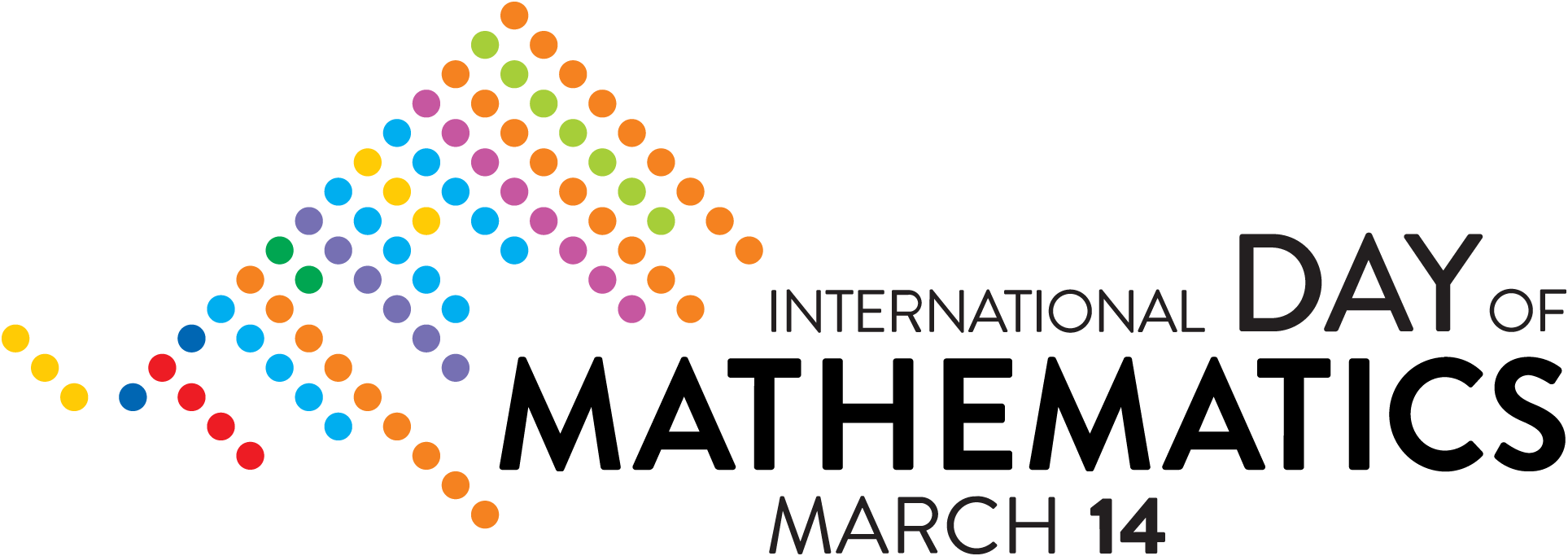
1. The recording of the webinar “Mathematics and Creativity in Art and Education” jointly organized by UNESCO and IMU on March 14, 2025, is now online. Ingrid Daubechies gave the keynote lecture “Mathematics Helping Art Conservation” of that webinar. In the recording one can watch several short 5-minute presentations by mathematicians contributing to art, by artists using mathematics and by educators bringing mathematical art to the classroom.

- 2020: Mathematics is Everywhere
- 2021: Mathematics for a Better World
- 2022: Mathematics Unites
- 2023: Mathematics for Everyone
- 2024: Playing with Math
- 2025: Mathematics, Art, and Creativity
Betül Tanbay
Chair of the IDM Governing Board
Subscribing to IMU News
To subscribe to IMU News, please click here. When you subscribe, you will receive an e-mail message to confirm your subscription so that misuse will be minimized.
IMU will not use the list of IMU News emails for any purpose other than sending IMU News, and will not make it available to others.
Previous issues can be seen here.